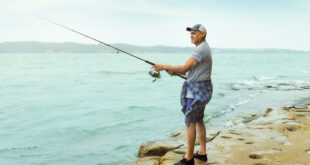By Mike Milstein
As George Burns reminds us, we have to grow older but we don’t have to grow old! Two people who are living up to their potential as they age were recently highlighted in a Nelson Mail editorial (5/01/08). Eric King-Turner, at 102, is “Britain’s oldest migrant and New Zealand’s oldest immigrant.” Shirley Peterson, a seventy nine year old Christchurch grandmother, is breaking world records for her age group in such track events as the triple jump, the long jump and the hurdles.
Why are they doing these exceptional things? King-Turner says “what’s important is that when I’m 105, I don’t want to be thinking ‘I wish I had moved to the other side of the world when I was 102.” For her part, Mrs. Peterson would clearly rather be a participant than an observer. Both are fully engaged with life because they realize that the past is prologue. What really matters is today and tomorrow. As the editorial concluded, “wrinkles, although unavoidable, don’t have to also crease the soul.”
Rabbi Harold White says “life unfolds daily, moment by moment…The people who are fascinating to me are people who are interested in discovering themselves, recycling themselves, and growing.” Recent research focusing on the ability of the brain to replenish itself as we age supports his observation. Simply put, staying active mentally and physically not only protects us from avoiding such mental losses as dementia and Alzheimer’s disease: It actually increases our mental capacity.
Older age, as actress Bette Davis reminds us, is not for sissies. It’s about doing the best we can with what we have. It’s about adapting and changing so we can achieve our potential. We may not be able to change what’s out there, but we can change what’s in ourselves. If we think about change as loss, pain, confusion, free floating anxiety, and suffering, we will try to hang on and keep things the way they are. If we think about change as going through normal transitions, adapting to them, evolving, and growing, we will learn to go with the flow.
The truth is that change is the only constant: Everything is impermanent. If we want to get the most out of life, at whatever stage we are in, we need to realize that we are all temporary residents on the planet and use our time well. The oft-quoted part of the Serenity Prayer says it all:
“God grant me the serenity
To accept the things I cannot change;
Courage to change the things I can;
And the wisdom to know the difference.”
The lives we lead depend greatly on whether we have “the wisdom to know the difference.” If we choose to focus on what we can change and not waste our energy on what we can’t change, we can age meaningfully and with quality. As Rousseau observes, “Youth is the time to study wisdom; old age is the time to practice it.” Of course, not all older people are wise, but for those who are there is an African proverb that sums it up: “The death of [an] older person is like the loss of a library.”
To grow old with wisdom is a worthy goal and an achievement that is available to all who tap into their potential for growth and development. Ageing does not just have to be about loss. It can also be the gateway to reinvention and, living fully.
Note: This article was published in The Leader, Nelson, NZ. It was written on behalf of the Conscious Ageing Network (CAN), which is sponsored by Age Concern, Nelson. If you want to share your thoughts with CAN or wish to know when interviews will be aired, send an email to agewell@xtra.co.nz.








Join the Discussion
Type out your comment here:
You must be logged in to post a comment.